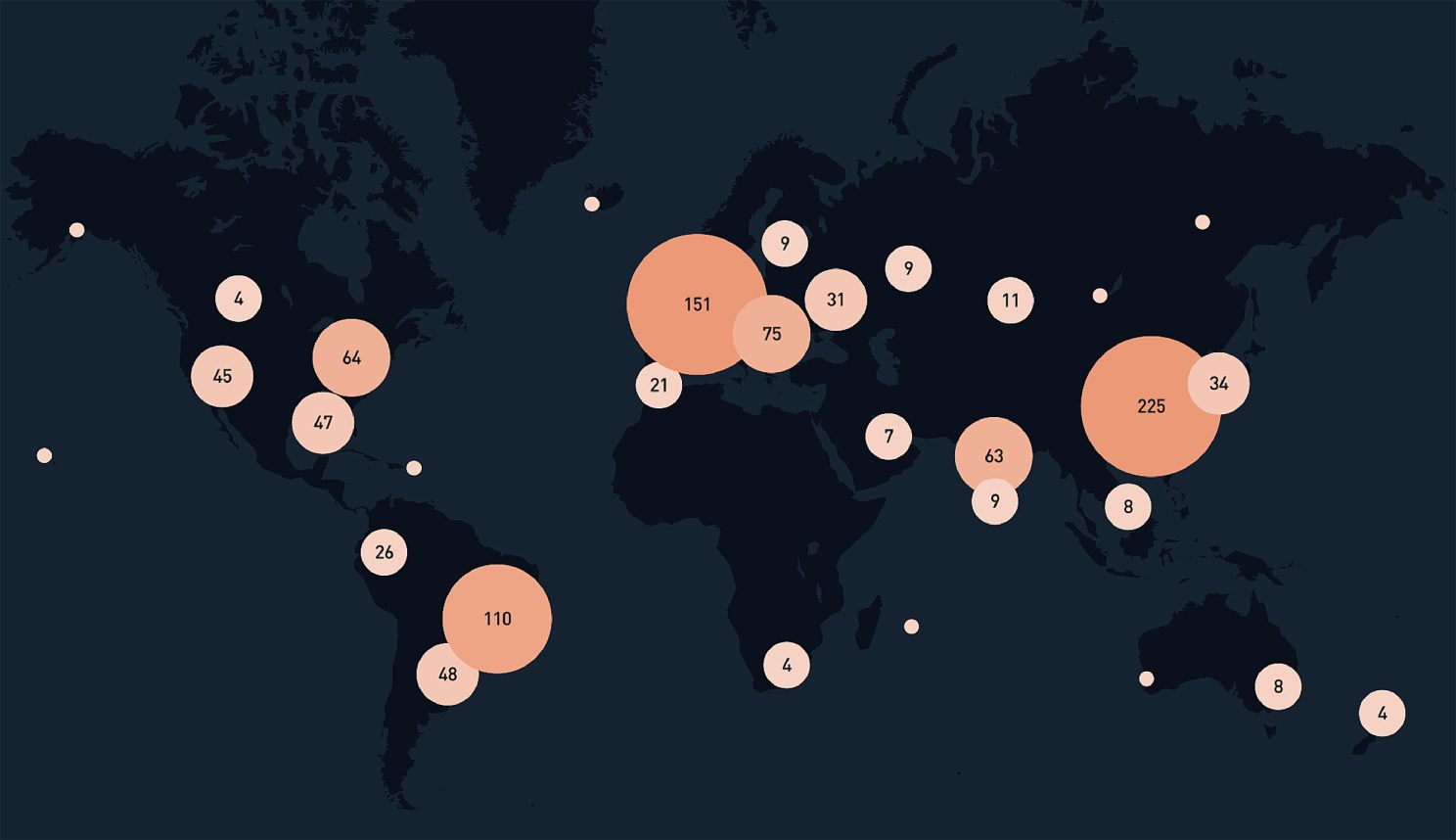Growth Lab tool can reveal economic opportunities for 1,000 cities

Illustration courtesy of the Growth Lab
The Growth Lab is announcing the launch of Metroverse, an Urban Economy Navigator designed to provide policymakers, entrepreneurs, investors, business organizations, civil society, and the general public with unprecedented economic data for more than 1,000 cities in 79 countries. The platform vividly illustrates the technological capabilities that underpin a city’s economy and its opportunities for future growth and diversification.
This tool builds upon the Growth Labs Atlas of Economic Complexity, which maps the productive capabilities of about 200 countries and helps identify paths for growth and diversification. Metroverse takes the research to the city level, providing answers and insights to these questions:
- What is the economic composition of this city?
- What does this city specialize in?
- What cities are similar to this city?
- What is this city’s position in the Industry Space?
- What are the growth opportunities for this city?
“For more than a decade, the Growth Lab has mapped productive capabilities — the knowhow and technology that support an economy’s capacity for growth — at the national level,” said Ricardo Hausmann, faculty director at the Growth Lab and the Rafik Hariri Professor of the Practice of International Political Economy at Harvard Kennedy School. “With the launch of Metroverse, we deepen our understanding of industrial composition and growth opportunities at the level where many of a nation’s economic capabilities reside: its cities and their local workforces.”
“For most cities, it is incredibly hard to know who they are, and therefore to know what they can be. Policymakers often struggle to figure out what other cities to compare themselves to when considering growth opportunities. But that’s what this tool is going to do,” said Frank Neffke, research director at the Growth Lab. “It gives cities — its public leaders and economic actors — a quick sense of who they are and what they can become.”
To translate these insights into a user-friendly online tool, researchers worked in close collaboration with the Growth Lab’s Digital Development and Design team, led by Annie White. Over the course of a year, the digital team implemented best practices in information design, rapid prototyping, and data architecture, resulting in a visually stunning interface with city-to-city comparisons at the heart of the experience. In recent months, the team also piloted the application with a global group of city leaders to ensure data integrity and viability of the user interface.
“Metroverse provides fascinating clarity on what city your community may be similar to, in terms of economic performance, and that can help shape your community’s competitive advantage,” said Eric Anthony Johnson, chief of Economic Development, Housing and Neighborhood Services for the City of Dallas, Texas, and a member of the pilot user group. “You may be surprised to discover what cities your community is most similar to. It may not even be in the United States.”




